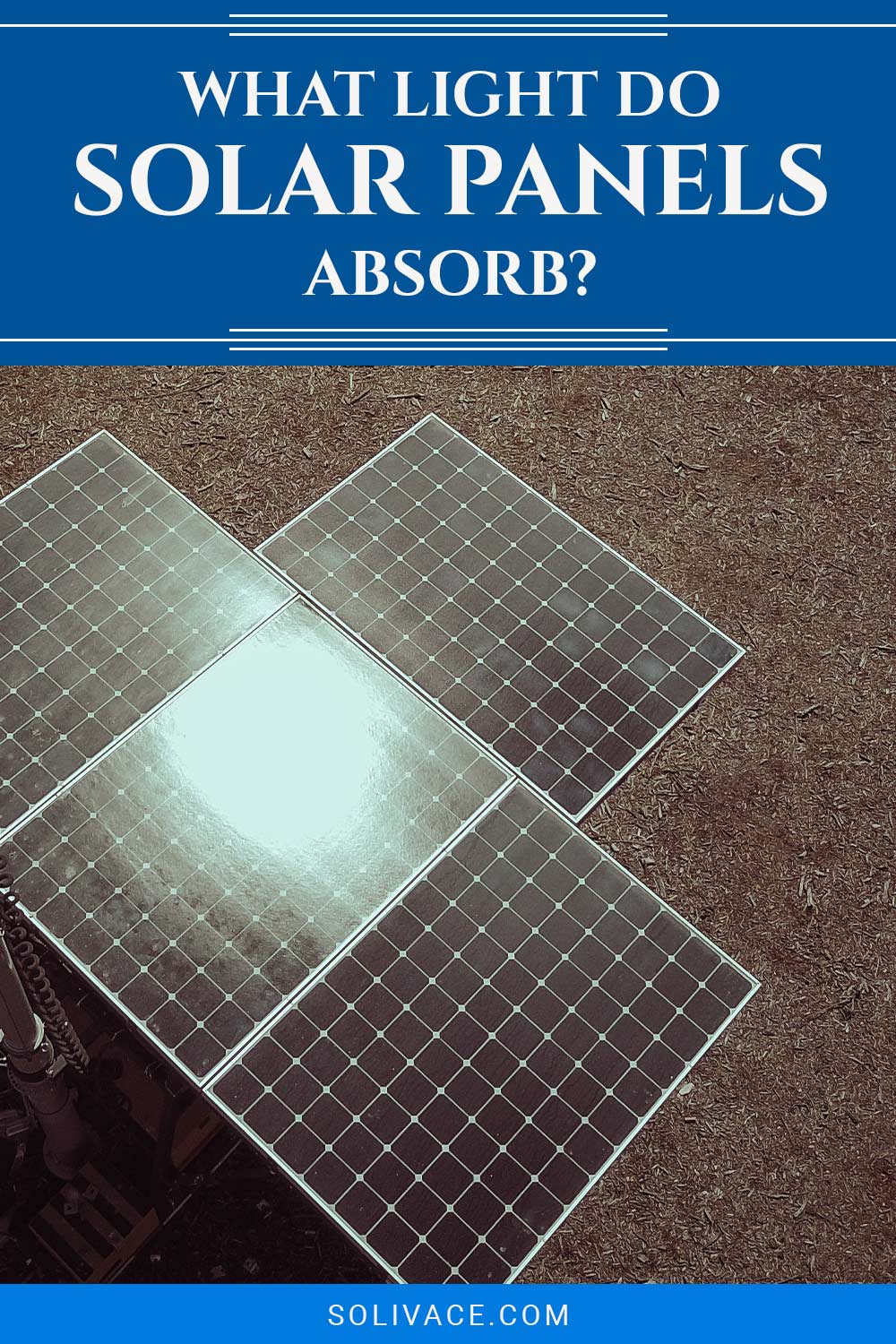What Light Do Solar Panels Absorb?
We may earn commissions for purchases made through links on our site. Learn more on our about us page.
We all know that solar panels absorb light from the sun. That is why solar panels are called what they are. Even the material is known as photovoltaic (PV), which is related to the sun. But what exactly does that mean?
This means that solar panels depend on the light of the sun to run. The light type, in particular, is known as UV rays. These are the same rays we protect ourselves from sunscreen when we are outside for the day.
Solar panels can technically absorb both light and heat. But unfortunately, they are not able to convert heat into energy and only rely on light. This is why solar panels can’t handle super high heat levels.

Do Solar Panels Work with LED Light?
Yes, LED lights can work to provide solar panels with the energy they need. However, they run mess less efficiently than a solar panel would work with UV light. A small solar light needs about 12 hours of LED light to run as it should.
In comparison, a solar light outdoors needs only about six hours of UV light to run for eight hours throughout the night. This means that LEDs are about half as efficient as UV lights.
Since this is inefficient, and you have to use power to keep the lights going (power likely coming from your solar panels anyway), this is very ineffective. So there are only a few scenarios where using artificial lights for solar power panels would be useful.
Do Solar Panels Work with Moonlight?
Technically, solar panels can work with moonlight. However, moonlight is simply the sun’s light reflecting off the moon, so it still has the UV light you need.
However, it is much less effective since it isn’t as bright and doesn’t directly hit your solar panels. Often, the moon’s light is too dull for solar panels to convert.
With the light being so faint, the solar panels will often just rest instead of attempting to convert the faint traces of UV light into something usable. However, if, for some reason, the moon’s light was very strong, it could absorb the light.
How do Solar Panels Work if there is No Sun?
Sometimes, solar panels can still work even when it is cloudy or shady. This is because solar panels can work with direct and indirect light. While solar panels do much better in direct light, they can still work a little if they get enough indirect light.
They essentially take the photons of the light, absorb them, and create an electric current. As long as there are enough photons for them to absorb, they can turn them into energy.
This is why your solar panels will usually get a certain amount, say 1200, on a sunny day, on cloudy days, or when they are partially in the shade, they can still get around watts of power or so.
Do Solar Panels Absorb All Light?
As long as the light is strong enough, solar panels can potentially absorb all light. However, for the most part, our lights aren’t strong enough.
Even LED lights, which are very bright, only provide about half the strength that sunlight would. Fluorescent lights are often not powerful enough for most solar panels to try to convert.
Additionally, the more inefficient a light is, the more heat it produces as a byproduct. This means that a lot of energy is already lost as heat. Since solar panels can’t use that heat, a lot of that energy gets wasted.
What Wavelengths of Light Do Solar Panels Absorb?
Solar panels are set up to work with any light on the visible spectrum. This means that any light that you can see, they can use. The efficiencies are vastly different, but they do have the potential to absorb all of the light.
However, that isn’t all that solar panels can absorb. They also can do infrared and ultraviolet ranges. Ultraviolet ranges are where solar panels shine and where they get their most efficiency. They also do very well with infrared and near-infrared light.
For those knowledgeable of the light spectrum, this usually means that solar panels are effective anywhere between 400nm and 1100nm.
Final Thoughts on What Light Do Solar Panels Absorb
Solar panels are designed to work with the light of the sun, but that doesn’t mean that is all they are limited to. Solar panels work best with ultraviolet, infrared, and near-infrared light.
While they can convert other wavelengths into power, sometimes the efficiency is so poor that the solar panels don’t work as they should. Efficiency is the real issue because solar panels can technically convert moonlight, but there isn’t enough light to convert any energy.
While solar panels can charge with artificial light, it is not very useful and sometimes counterintuitive, especially if the solar panel is what is providing you with the energy to power the light in the first place.



Leave a Reply
You must be logged in to post a comment.